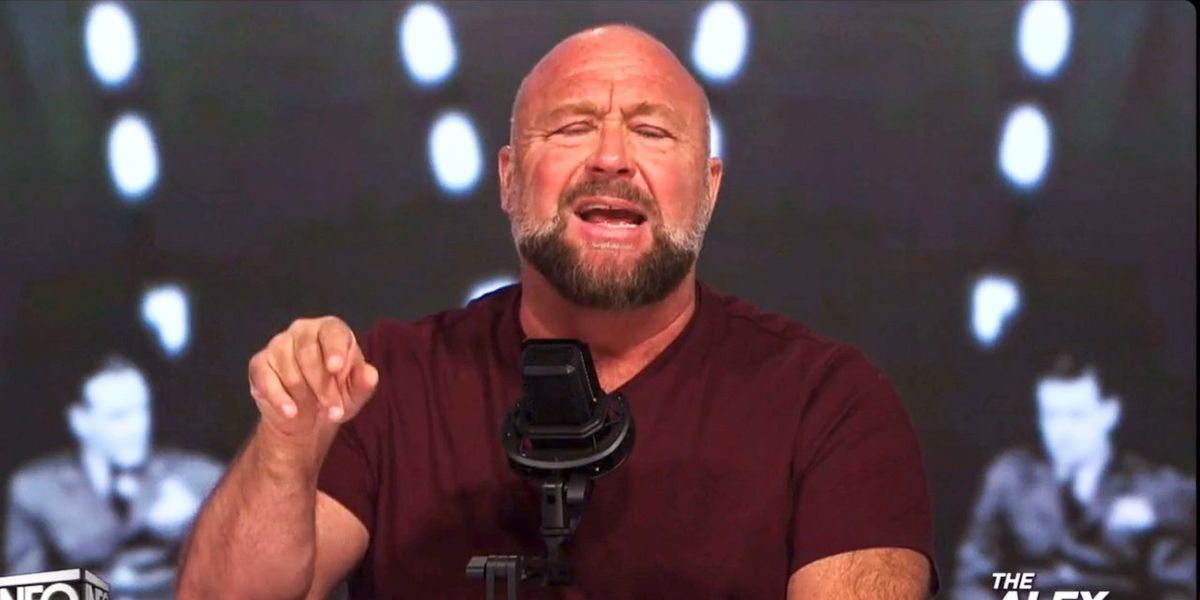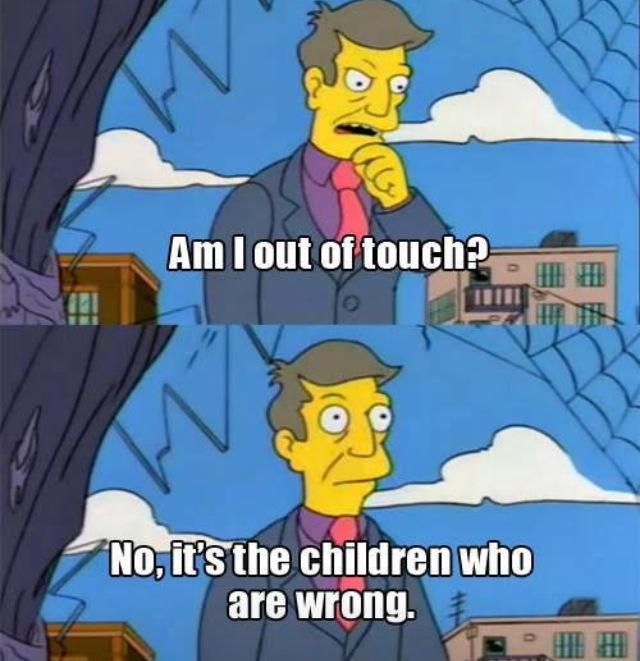Conspiracy theorist Alex Jones accused Vice President Kamala Harris of having the ability to control hurricanes through so-called “weather weapons.”
Jones kicked off his Tuesday broadcast by promising to explain how he knew the government could control the weather.
“I’m going to be covering today, and I’ve sent the crew over 20 clips, and I’ve got over a hundred documents right here,” he explained. “I’m gonna do a big presentation for everybody on what’s really going on with weather weapons.”
Jones claimed to have interviews and government documents that would prove his point.
“Then we have the bold headlines that I put up on X that the Kamala Harris, you know, the Biden-Harris administration is in control of this hurricane,” he said of Hurricane Milton.
“So they have the power certified easily with just five or six big aircraft,” he opined. “And that’s the old technology, not the lasers that are all certified and the Doppler radar. They also have on ships and in large oil drilling platforms that they’ve launched. They could totally just make this thing stop and dump the water in the ocean.”
Jones insisted that the technology to control hurricanes was used before the terrorist attacks of Sept. 11, 2001.
“And on 9/11, the hurricane was gonna hit,” he asserted. “Remember in 2001, but that meteorologists never saw anything like it. It just turned away from the coast went away because that was gonna get in the way of some of the stuff the deep state was up to.”
Scientists have said it is currently impossible to control weather events like Hurricane Milton.



I’ve usually pointed towards our education system but I’m not so sure anymore. I think there’s more at play.
I think it’s more about the inherit individualism in America, “the American dream”, capitalism, and the definition of The United States. There’s a strong rejection of community support and social services. There’s a desire to have more than we need. There’s a fear of “others” who threaten your domicile and prosperity. The country was founded on a distrust of government with the formation of semi-sovereign states and multiple forms of checks and balances.
I think there’s an argument that to “be American” means to be in opposition to and skeptical of government. At first, in wake of the revolutionary war, this seemed reasonable. With slow moving news and a journalistic industry maintaining the fourth pillar of democracy, without the temptation of ad revenue or competition with social media, Americans were, frankly, sheep to a small group of organizations. As a 21st century first first world country, we really need to get together and reassess what the role of government should be and how to draft a constitution that meets the needs of a nation in an increasingly connected (and shrinking) planet.
We are not afforded the tools to be competitive with the future of humanity.
I actually believe our lack of faith in religion has had a negative impact. We used to be more connected with our community. We largely trusted one another. It was not that long ago that hitch hiking across the country was a normal practice for teens. I don’t believe in gods but I have respect for some aspects of some religious organizations. What seems to have replaced this is social media bubbles or tribes. Or internet forums like this.
We’re an increasingly fractured nation that holds distrust of all things in high regard.
Also, we’re a nation that defines wealth as the ability to acquire rather than the ability to give.
There’s also an apparent pride in anti intellectualism that seems to be typically American.
I think that goes hand in hand with the attacks on education. They’ve painted themselves as being the voice of “working class” Americans and discredit experts that provide knowledge that runs counter to their propaganda as out of touch “liberal elites”. It’s truly ironic that they’re implying that your average American is stupid with that statement and yet their supporters fully agree with it. They point to the correlation between higher education and disbelief in their propaganda as proof that the highly educated are wrong in a weird cyclic argument. Their stance is basically if the intellectuals don’t agree with me, it’s because they’re wrong, not because I am.
Basically this:
I noticed that in the early 1980s in elementary school. The best students got teased and bullied by others who weren’t trying. It made no sense, if you don’t want to learn that’s on you but why try to hold others back?
I don’t think it’s because people are choosing to be dumb. Knowing how to do things because you learned the hard way, because you failed over and over, or because your father taught you how to do it is praised more in this group. Gumption and grit is valued more than being told by “the elite” about how you’re supposed to do things. “Science ain’t got nothing on how my grandady’s done it”.
It’s really very sad. Some people are so anti-establishment that they’d sooner see their younger generations struggle to prosper than to send them off to a university to educate themselves to make abetter life for the future of their family. Let’s not even consider how they’ve been brainwashed to believe “republicans” are anti-establishment and in favor of the working class.
What I don’t understand is how easily people accept claims by random uncredited people on social media. It was not long ago that we all laughed at the people who took any cover of the National Inquirer remotely seriously.
Context and intent aside, what’s the difference between this Hurricane Helene has brought a flood of AI photos and conspiracy theories to social media and this Bat Child Escapes!?
One point I disagree on is that the country was founded on distrust of government. I’d say rather it was founded on distrust of dictatorships and autocracy. From the outset it was designed in a way that attempted to distribute power in such a way that no single individual or group had absolute power. It was one of the reasons why several of the founders were highly skeptical of political parties and considered banning them outright but instead settled for voicing warnings about them. They feared that a single political party could eventually become dominant and become the de facto ruler of the country.
In recent years there has been an effort to re-frame distrust of autocracy into a general distrust of government. I believe this has been primarily driven by powerful business interests in an attempt to remove regulations that get in the way of their maximizing profits at the expense of the public. They have rather successfully hijacked the anti-communism propaganda of the 50s and 60s and twisted it into an anti-government propaganda.
The really weird move is how right-wing attitudes in the USA have gone from distrust of government and its “interference” in their lives, through distrust of autocracy, to strong support for fascist autocracy that would be highly oppressive and invasive into people’s lives. The last step is astonishing.
Absolutely, but it’s also easy to see how the change happened. The original goal was to prevent autocracy, so power was distributed and checks and balances were created to prevent any one person or branch from being able to have too much authority. The message was corrupted into distrust of all government and combined with the debunked trickle down capitalism theory (thanks Reagan) that wealthy companies would lead to a wealthy public. The GOP then ran on a platform of eliminating “corrupt government” and removing “government interference” that was supposedly preventing that sweet free market capitalism they had been promising from working and trickling down to everyone. This then allowed them to re-frame stripping regulations and power from various government bodies and centralizing it within the executive branch as removing “wasteful and corrupt government”, and removing checks and balances as removing laws and regulations that “protected corrupt government officials”.
This also explains the “he’s not hurting the right people” crowd, as they were sold on the idea that the autocrats would be using their power to attack government institutions and politicians, not the public. They never bothered to follow things to their logical conclusion and ask “once you’ve established an autocrat, and removed all government regulations, what happens next?”, with the obvious answer “you have a dictatorship”.
That’s a good analysis, and helpful. Thanks!
Another important point that occurred to me on reflection is why they can simultaneously hold the belief in their head at the same time that all politicians are corrupt, and yet still have complete faith in Trump. They treat politicians like they’re some foreign species, like they’re not just normal people. In their mind there’s a clear distinction between “us”, and “politicians”. But they don’t consider Trump to be a politician, they’ve internally classified him as “business man”, hence he’s not corrupt, because he’s not a politician.
Thanks for this interesting and deeper take. I hadn’t made that link between individualism and this phenomenon, but it seems very plausible because we see less of this in countries that aren’t as antisocial.